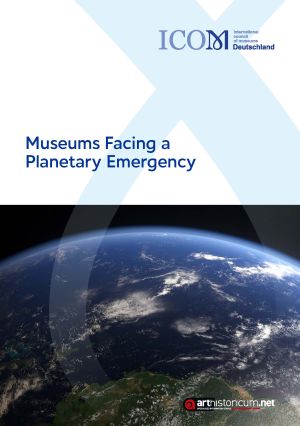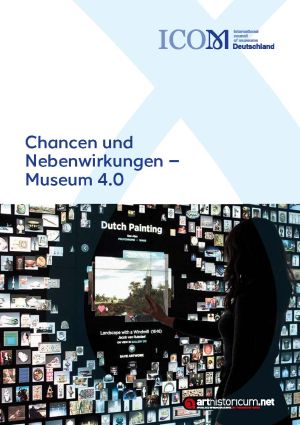Wintzerith, Stéphanie
Museums Facing a Planetary Emergency: ICOM Germany annual conference together with ICOM Greece and ICOM Cyprus – held online on 14 November 2020
Our world is changing rapidly under the influence of human behaviour: climate change and biodiversity loss but also pandemics are just some of the most dramatic manifestations of global crises of unprecedented scope. As trusted sources of information and sites of transformative engagement, museums can and must play a role in addressing the most pressing issues of our times. How can museums respond to those crises, what new roles could our institutions play to strengthen the communities they serve? What is the role of our collections and how can they be protected from the dangers of global changes or local disasters? How should museums reinvent themselves in the face of a planetary emergency?
Chancen und Nebenwirkungen – Museum 4.0: Jahrestagung von ICOM Deutschland, 14. bis 16. November 2019 in München. Tagungsband
The challenges of museums in the digital age are manifold, but where to begin in view of the multitude of tasks? The 2019 annual conference of ICOM Germany used interesting case studies – Museum4punkt0, NUMiD, ViSIT (University of Passau), Cadolzburg (Bavarian Palace Administration), Digital Strategy for Museums (State Office for Non-Governmental Museums in Bavaria), and many others – to discuss different perceptions of the field of digitization in cultural establishments, individual fields of action, and difficulties that often arise in museum reality. As diverse as the museums are, the twenty or so examples presented make it clear: If digitization is to be a successful sustainable opening of museums to the digital and thus extend beyond individual digital mediation offers, emphasized Julian Nida-Rümelin in the introduction, it must go hand in hand with a digital mindset and a corresponding work culture. Furthermore, a digital strategy that suits one’s own institution as well as sufficient resources and the support of the museum sponsors are important requirements.








